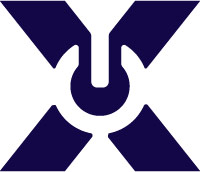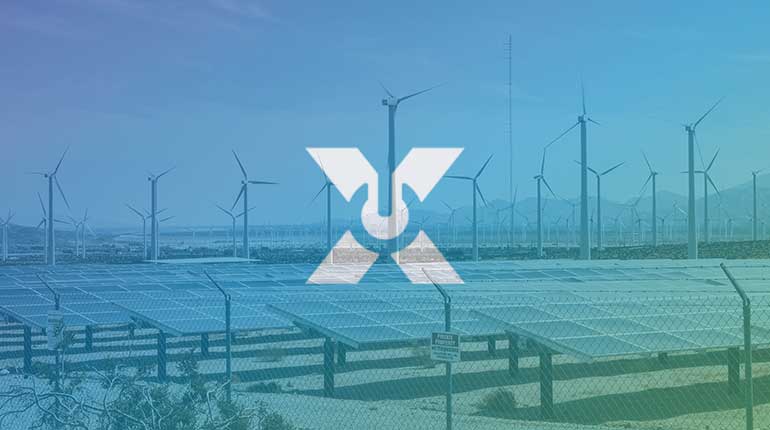Former HOMER Energy CEO and Founder Peter Lilienthal Joins Xendee as an Advisor
SAN DIEGO--(BUSINESS WIRE)--The Xendee Corporation, provider of the leading design and operation platform for distributed energy and microgrid...
3 min read
 Xendee
Sep 17, 2024 10:50:39 AM
Xendee
Sep 17, 2024 10:50:39 AM

Xendee and the University of Illinois Urbana-Champaign partner to develop and provide groundbreaking low-carbon solutions for powering data centers.
SAN DIEGO–(BUSINESS WIRE)–Xendee Corporation, provider of the leading design and operation platform for distributed energy systems, is excited to announce a partnership with researchers from the Department of Nuclear, Plasma, and Radiological engineering (NPRE) at University of Illinois Urbana-Champaign (UIUC) to analyze and develop distributed energy solutions that include Small Modular Reactors (SMRs) integrated with renewables to power data centers with reliable carbon free energy.
The growth in power demand from AI/data centers is forecast at a 15% CAGR from 2023-2030, driving data centers to make up 8% of total US power demand by 2030 from about 3% currently (Goldman Sachs Equity Research, April 2024). Access to power is the leading constraint on AI/data center development. And power from the grid is increasingly not available in the locations preferred for data centers, requiring new transmission from distant renewable generation. Facing constraints on power supply from the grid, the data center industry is starting to look at options to “Bring Your Own Power.” Power supply is further constrained by the industry’s firm commitment to clean energy sources.
To address growing demand while meeting the need for carbon reduction, Xendee and UIUC have partnered to analyze and develop a phased approach to providing local power to data centers through microgrids. This phased approach allows for existing renewable and low carbon generation technologies to be used initially while simultaneously being flexible and scalable to add newer and more efficient technologies such as SMRs at the right times. This flexibility is key to a smooth evolution as we move toward the ultimate goals of sustainable power generation and efficient operation of data centers.
In the initial phase, Distributed Energy Resources (DERs) are considered and analyzed with the Xendee platform such as energy storage (thermal and battery), innovative cooling technologies, and generation technologies such as fuel cells, and combustion engines that run on fossil fuels, hydrogen, or biofuels. This standardized and well-proven approach is ready for usage in the industry today. When advanced nuclear technologies are approved by regulators and ready for deployment beginning in 2030, they can be phased into the microgrid configuration for data center facilities.
“In the right situations, the economics of a nuclear-powered data center microgrid are very promising, particularly when optimized through component sizing, deployment planning, and coupled with renewables and energy storage,” said Dr. Timothy Grunloh, NPRE Principal Research Scientist at UIUC. “And our partnership with Xendee enables us to dig into the details of optimality based on varied, and sometimes conflicting, objectives of economics, reliability, and decarbonization.”
“Xendee’s collaboration with UIUC brings access to historical operating data for real power and cooling from the facility that hosted the leadership class Blue Waters supercomputer (>10MWe) located at the National Center for Supercomputing Applications (NCSA) on UIUC’s campus, enabling us to run real-world optimization analyses,” said Dr. Michael Stadler, CTO and Co-Founder of Xendee. “And following the Blue Waters supercomputer, the NCSA created the Delta supercomputer which is now being built out with an AI focus, giving us an excellent case to work with over time.”
From the data obtained from UIUC on the power supply and operating environment of Blue Waters, Xendee creates a framework capable of optimizing data center configurations for power supply in a microgrid context and parameters for power and heat management systems. The framework will be used to analyze data center types - enterprise, colocation, hyperscale, edge, and modular – each with their unique characteristics and power and heat requirements. In a second phase of this project the framework established on the Xendee platform will be used to introduce power from advanced nuclear technology and scenarios for its contribution to reliable, resilient and carbon-free power for data centers.
This work is supported by U.S. Department of Energy's (DOE) Office of Electricity (OE) Microgrid Program
About Xendee Corporation
Xendee is an award-winning software platform built to integrate the feasibility analysis and proposal building, portfolio assessment, detailed engineering, and operation of Distributed Energy Resources and EV fast-charging infrastructure. It is the only integrated provider of Microgrid design and Artificial Intelligence-based Microgrid operation optimization software. Xendee’s techno-economic generative algorithms can produce an ideal investment solution and operation schedule to meet organizational goals which can include reducing costs, cutting CO2 emissions, and increasing resilience. Explore how Xendee can empower your organization by setting up a call with us at xendee.com/demo.
Trent Maw
tmaw@xendee.com

SAN DIEGO--(BUSINESS WIRE)--The Xendee Corporation, provider of the leading design and operation platform for distributed energy and microgrid...

SAN DIEGO--(BUSINESS WIRE)--Xendee, the world’s leading EV fast-charging and distributed energy system design platform, is proud to announce the...

SAN DIEGO--(BUSINESS WIRE)-- Today, Xendee, the world’s leading Electric Vehicle (EV) fast-charging and distributed energy system design platform,...